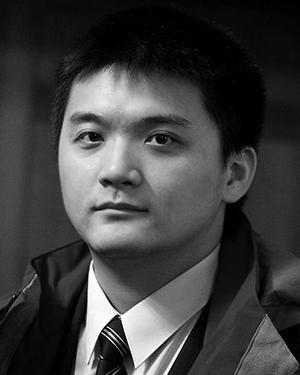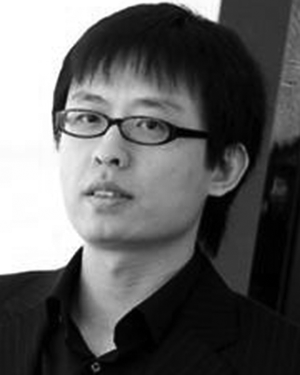Abstract:
Textbook highlighting is widely considered to be beneficial for students. In this paper, we propose a comprehensive solution to highlight the online lecture videos in bot...Show MoreMetadata
Abstract:
Textbook highlighting is widely considered to be beneficial for students. In this paper, we propose a comprehensive solution to highlight the online lecture videos in both sentence and segment-level, just as is done with paper books. The solution is based on automatic analysis of multimedia lecture materials, such as speeches, transcripts, and slides, in order to facilitate the online learners in this era of e-learning - especially with MOOCs. Sentence-level lecture highlighting basically uses acoustic features from the audio and the output is implemented in subtitle files of corresponding MOOC videos. In comparison with ground truth created by experts, the precision is over 60 percent, which is better than baseline works and also welcomed by user feedbacks. On the other hand, segment-level lecture highlighting works with statistical analysis, mainly by exploring the speech transcripts, the lecture slides and their connections. With the ground truth created by massive users, an evaluation process shows that general accuracy can reach 70 percent, which is fairly promising. Finally, we also attempt to find potential correlation between these two types of lecture highlights.
Published in: IEEE Transactions on Learning Technologies ( Volume: 11, Issue: 1, 01 Jan.-March 2018)

Hasso Plattner Institute, Potsdam, Germany
Xiaoyin Che received the bachelor's degree from the College of
Computer Science, Beijing University of Technology (BJUT), in 2009, in computer science and technology, and the
master's program degree from the Multimedia and Intelligent Software Technology Laboratory, College of Computer
Science, BJUT, in 2012. He is currently working toward the PhD degree in the Chair of Internet Technologies and
System...Show More
Xiaoyin Che received the bachelor's degree from the College of
Computer Science, Beijing University of Technology (BJUT), in 2009, in computer science and technology, and the
master's program degree from the Multimedia and Intelligent Software Technology Laboratory, College of Computer
Science, BJUT, in 2012. He is currently working toward the PhD degree in the Chair of Internet Technologies and
System...View more

Hasso Plattner Institute, Potsdam, Germany
Haojin Yang received the diploma engineering degree from Technical
University Ilmenau, Germany, in 2008 and the doctorate degree from the Hasso-Plattner-Institute for IT-Systems
Engineering (HPI), University of Potsdam. His current research interests revolve around multimedia analysis,
information retrieval, computer vision, and deep learning technology.
Haojin Yang received the diploma engineering degree from Technical
University Ilmenau, Germany, in 2008 and the doctorate degree from the Hasso-Plattner-Institute for IT-Systems
Engineering (HPI), University of Potsdam. His current research interests revolve around multimedia analysis,
information retrieval, computer vision, and deep learning technology.View more

Hasso Plattner Institute, Potsdam, Germany
Christoph Meinel studied mathematics and computer science at the
Humboldt University of Berlin from 1974 to 1979. He received the PhD degree with the title Dr. rer. nat, in 1981 and
the habilitation degree the title Dr. Sc. nat, in 1988. From 1981 to 1991, he served as a research assistant with
Humboldt University and at the Institute for Mathematics, Berlin Academy of Sciences. He has been the scientif...Show More
Christoph Meinel studied mathematics and computer science at the
Humboldt University of Berlin from 1974 to 1979. He received the PhD degree with the title Dr. rer. nat, in 1981 and
the habilitation degree the title Dr. Sc. nat, in 1988. From 1981 to 1991, he served as a research assistant with
Humboldt University and at the Institute for Mathematics, Berlin Academy of Sciences. He has been the scientif...View more

Hasso Plattner Institute, Potsdam, Germany
Xiaoyin Che received the bachelor's degree from the College of
Computer Science, Beijing University of Technology (BJUT), in 2009, in computer science and technology, and the
master's program degree from the Multimedia and Intelligent Software Technology Laboratory, College of Computer
Science, BJUT, in 2012. He is currently working toward the PhD degree in the Chair of Internet Technologies and
Systems, Hasso Plattner Institute, Potsdam, Germany. He previously did research in video coding standards and image
processing. Now, his research interests include multimedia analysis, natural language processing, and their
applications in e-Learning.
Xiaoyin Che received the bachelor's degree from the College of
Computer Science, Beijing University of Technology (BJUT), in 2009, in computer science and technology, and the
master's program degree from the Multimedia and Intelligent Software Technology Laboratory, College of Computer
Science, BJUT, in 2012. He is currently working toward the PhD degree in the Chair of Internet Technologies and
Systems, Hasso Plattner Institute, Potsdam, Germany. He previously did research in video coding standards and image
processing. Now, his research interests include multimedia analysis, natural language processing, and their
applications in e-Learning.View more

Hasso Plattner Institute, Potsdam, Germany
Haojin Yang received the diploma engineering degree from Technical
University Ilmenau, Germany, in 2008 and the doctorate degree from the Hasso-Plattner-Institute for IT-Systems
Engineering (HPI), University of Potsdam. His current research interests revolve around multimedia analysis,
information retrieval, computer vision, and deep learning technology.
Haojin Yang received the diploma engineering degree from Technical
University Ilmenau, Germany, in 2008 and the doctorate degree from the Hasso-Plattner-Institute for IT-Systems
Engineering (HPI), University of Potsdam. His current research interests revolve around multimedia analysis,
information retrieval, computer vision, and deep learning technology.View more

Hasso Plattner Institute, Potsdam, Germany
Christoph Meinel studied mathematics and computer science at the
Humboldt University of Berlin from 1974 to 1979. He received the PhD degree with the title Dr. rer. nat, in 1981 and
the habilitation degree the title Dr. Sc. nat, in 1988. From 1981 to 1991, he served as a research assistant with
Humboldt University and at the Institute for Mathematics, Berlin Academy of Sciences. He has been the scientific
director and CEO of the Hasso Plattner Institute for Software Systems Engineering GmbH (HPI), Potsdam, Germany, since
2004. Previously, he worked with the University of Saarbrcken and University of Paderborn, and became full
professor (C4) for computer science with the University of Trier. His areas of research focus on internet and
information security, Web 3.0, Semantic Web, social and service Web and the domains of e-learning, tele-teaching, and
tele-medicine. He is author/co-author of nine books and four anthologies, as well as editor of various conference
proceedings. More than 400 of his papers have been published in high-profile scientific journals and at international
conferences. He is a member of acatech, the German National Academy of Science and Engineering and a
member of the IEEE.
Christoph Meinel studied mathematics and computer science at the
Humboldt University of Berlin from 1974 to 1979. He received the PhD degree with the title Dr. rer. nat, in 1981 and
the habilitation degree the title Dr. Sc. nat, in 1988. From 1981 to 1991, he served as a research assistant with
Humboldt University and at the Institute for Mathematics, Berlin Academy of Sciences. He has been the scientific
director and CEO of the Hasso Plattner Institute for Software Systems Engineering GmbH (HPI), Potsdam, Germany, since
2004. Previously, he worked with the University of Saarbrcken and University of Paderborn, and became full
professor (C4) for computer science with the University of Trier. His areas of research focus on internet and
information security, Web 3.0, Semantic Web, social and service Web and the domains of e-learning, tele-teaching, and
tele-medicine. He is author/co-author of nine books and four anthologies, as well as editor of various conference
proceedings. More than 400 of his papers have been published in high-profile scientific journals and at international
conferences. He is a member of acatech, the German National Academy of Science and Engineering and a
member of the IEEE.View more


